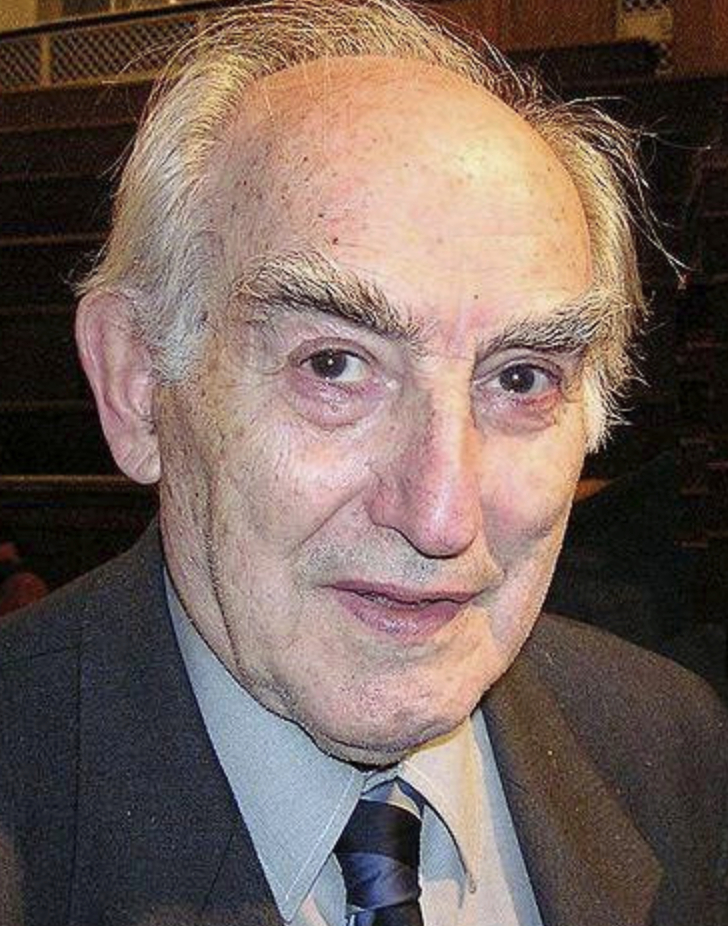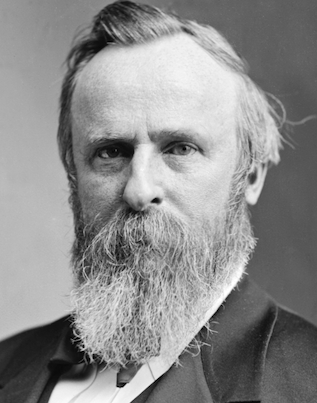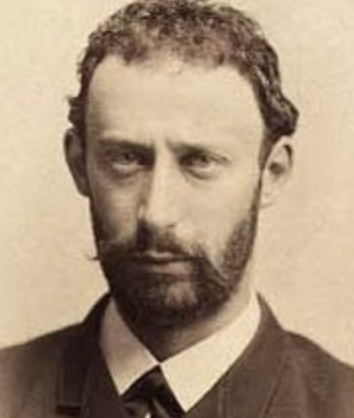October 4
Vitaly Ginzburg

Born on this date in 1916 (Sept. 21 on the old Russian calendar) was Vitaly Lazarevich Ginzburg, a Nobel Prize-winning physicist and a father of the Soviet hydrogen bomb.
Ginzburg’s obituary in the UK Guardian called him a “vehement atheist” who strongly opposed the role of the Russian Orthodox Church in state affairs after the 1991 Soviet collapse: “He protested against attempts to introduce religious lessons in schools, telling a newspaper in 2007 that ‘these Orthodox scoundrels want to lure away children’s souls.’ As a result, several Orthodox Christian groups threatened to sue him for ‘offending millions of Russian Christians.’ “
Ginzburg was born in Moscow to Jewish parents. His father was an engineer and his mother, who died of typhoid when he was 4, was a physician. After working as an assistant in an X-ray lab, he earned a Ph.D. in physics from Moscow State University and joined the Lebedev Institute. He and his first wife, Olga Zamsha, were married in 1937 and divorced in 1946, when he married Nina Ermakova. In 1944 Nina had been arrested for allegedly being part of a plot to kill Stalin. She was released in 1945 but was exiled to Gorki, where Ginzburg met her. The institute had been moved to Gorki during World War II.
His areas of expertise in physics included quantum theory, astrophysics and radioastronomy. Ginzburg was originally turned down to be part of the Soviet hydrogen bomb program due to his wife’s exile and his Jewish background, but later he joined a team that included Andrei Sakharov. Sakharov suggested using alternating layers of uranium and fuel in the bomb. Ginzburg suggested using lithium-6 as fuel because, when hit by neutrons, it would release tritium and helium nuclei and significant amounts of energy. He would later say that only his participation in the H-bomb project saved him from the firing squad.
Ginzburg next turned his attention to superconductivity, the ability of some materials to carry electricity without any losses due to friction. With physicist Lev Landau, he worked out equations that correctly predicted a superconductor’s tolerance for a magnetic field. Their work paved the way for Alexei Abrikosov to develop ways to achieve superconductivity despite the presence of high magnetic fields. Ginzburg and Abrikosov shared the 2003 Nobel Prize in physics with Anthony Leggett.
Ginzburg was part of a group of scientists who helped discredit Trofim Lysenko’s hypothesis that acquired physical characteristics could be inherited, a belief that impeded genetic research in Russia for decades.
Commenting when he was 86 on Karl Marx‘s aphorism that “Religion is the opium of the people,” Ginzburg said, “I am not a supporter of Marxism, but I fully agree with this formulation.” (“Notes on Jewish History,” Dec. 26, 2002) He said he envied believers, “But the mind is given to man in order to control his emotions and not engage in self-deception, belief in miracles.”
He died of cardiac arrest at age 93. (D. 2009)
“I am, and always have been, an atheist, but I think that to be — or not to be — religious is a fundamental human right. It is, however, a different matter if the church interferes with secular education, offering creationism as a foundation of science.”
— Ginzburg, Physics World interview (Nov. 3, 2009)
Rutherford B. Hayes (Quote)

“We all agree that neither the Government nor political parties ought to interfere with religious sects. It is equally true that religious sects ought not to interfere with the Government or with political parties. We believe that the cause of good government and the cause of religion both suffer by all such interference.”
— Rutherford B. Hayes, born Oct. 4, 1822 (D. 1893); speech in Marion, Ohio, July 31, 1875, two years before he was elected U.S. president. Hayes, who previously served as an Ohio congressman and governor, spoke out against Catholic intrusion into public education while campaigning for governor. That led to some branding him as anti-Catholic, when in reality he opposed all sectarian interference with public schools, even though he attended church regularly.
Carl Brandes

On this date in 1847, Danish writer and politician Carl Edvard Cohen Brandes was born in Copenhagen. He received a Ph.D. from Copenhagen University in Oriental languages and edited several radical political publications. His novels and plays propounded rationalist and progressive ideals.
Brandes notably refused as a freethinker to take the oath when elected to the Folketing (the unicameral parliament) in 1880. Despite attempts to unseat him, he won the right to affirm. Even with his openly atheist views, he was appointed minister to France. His brothers, Georg and Ernst, were also freethinkers. (D. 1931)
“He published translations from Sanskrit and also Danish versions of Isaiah (1902), Psalms (1905), Job, and Ecclesiastes (1907). However, he openly professed atheism and had no connection with Jewish affairs.”
— Encyclopedia Judaica entry on Brandes (1971)
